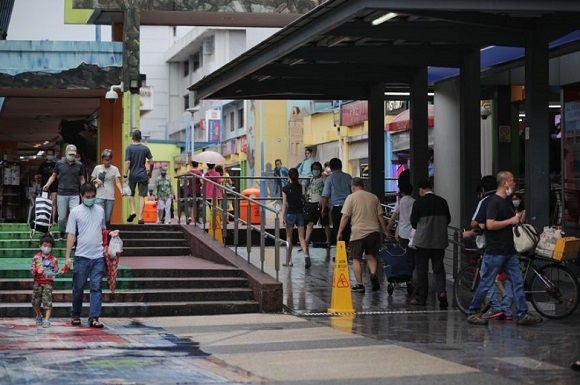
War has been declared on primary liver cancer - one of the top killers in Singapore. ST PHOTO: GIN TAY
SINGAPORE - War has been declared on a cancer that is one of the top killers in Singapore, with a nationwide study being rolled out to detect the enemy early, among other targets.
Primary liver cancer, otherwise known as hepatocellular carcinoma (HCC), is the third-deadliest cancer among men and fourth among women here. Globally, it is the sixth-most common cancer and the third-most common cause of death among all cancer sufferers.
Only 20 per cent of HCC patients are diagnosed at an early stage, when a cure is possible.
Now the Elegance study led by the National Cancer Centre Singapore (NCCS) aims for more accurate early diagnosis. It will also fine-tune an artificial intelligence (AI) algorithm to predict an individual's risk of developing the ailment and discover novel molecular targets to prevent HCC development.
Professor Pierce Chow, principal investigator of the study, said: "Having cared for patients with liver cancer for more than 20 years, I see a pressing need to better predict this disease, diagnose it early and improve treatment outcomes."
He is a senior consultant at the division of surgery and surgical oncology at Singapore General Hospital (SGH) and NCCS.
In Singapore, the high-risk factors of HCC include liver cirrhosis (hardening of the liver), chronic hepatitis B or C infections, non-alcoholic fatty liver disease and excessive alcohol consumption.
Non-alcoholic fatty liver disease, which has been on the rise globally, has been attributed to causes such as a more Western diet.
Some experts believe that an increased consumption of fructose (such as in soft drinks and cookies) has contributed significantly to this condition, Prof Chow said.
The study will be done over four years and participants must return to the site where they were recruited for a follow-up every six months, with seven visits in all. Their biosamples (blood, urine and stool) will be collected, and blood tests as well as an ultrasound will be done at each visit.
If these patients develop HCC during the monitoring period, they will be treated accordingly and can continue contributing data to the study.
There are no costs incurred from participating in the study, unless participants develop HCC and seek treatment.
The study will include input from SGH, National University Hospital (NUH), Changi General Hospital, Sengkang General Hospital and Tan Tock Seng Hospital.
In addition to the hospitals, eight SingHealth polyclinics will serve as recruitment sites, while academic institutions, namely Duke-NUS Medical School and Singapore Phenome Centre, will also be collaborating.
More than 200 participants have been recruited since April. The study aims to rope in 2,000 individuals by early next year.
Early diagnosis of HCC has been challenging given the lack of validated diagnostic, predictive and prognostic biomarkers.
Diagnostic biomarkers help to determine the presence of HCC while prognostic types provide information on the patient's overall cancer outcome.
Predictive biomarkers identify the treatment the patient is most likely to benefit from.
Emerging data suggest that changes in the stool (microbiome), blood and urine (metabolome) may be indicative of HCC.
Building an AI algorithm that leverages magnetic resonance imaging scans may help predict the risk of developing HCC, thereby allowing for personalised surveillance and treatment.
The study has three tracks. First, it will evaluate the efficacy of a microRNA (miRNA) diagnostic kit developed by Singapore-headquartered molecular diagnostic company MiRXES for more accurate diagnosis of early stage HCC.
Second, it will develop an AI algorithm to identify at-risk patients with digital medical technology company Perspectum.
Third, it will determine the changes in the microbiome and metabolome that lead to HCC with precision gut microbiome company AMiLi.
MiRXES had, in 2019, received approval from the Health Sciences Authority for the world's first miRNA polymerase chain reaction test for early detection of gastric cancer.
Named Gastroclear, it has since served tens of thousands of patients in Singapore, China and other countries, saving lives by identifying early-stage gastric cancer in asymptomatic patients, said Dr Zhou Lihan, co-founder and chief executive of MiRXES.
"We are very excited to be part of this study and look forward to making this innovation accessible to millions of at-risk individuals," he added.
Associate Professor Dan Yock Young, a senior consultant in the division of gastroenterology and hepatology at NUH, said: "Liver cancer is one of the deadliest cancers in Asia. Developing new tools of screening and identification of the at-risk population will allow us to detect cancer at its earlier stage, when it is potentially curative."
For more information on the study and eligibility, the public can call 6326-6573 or send an e-mail to ahcc10@nccs.com.sg













 Get it on Google Play
Get it on Google Play